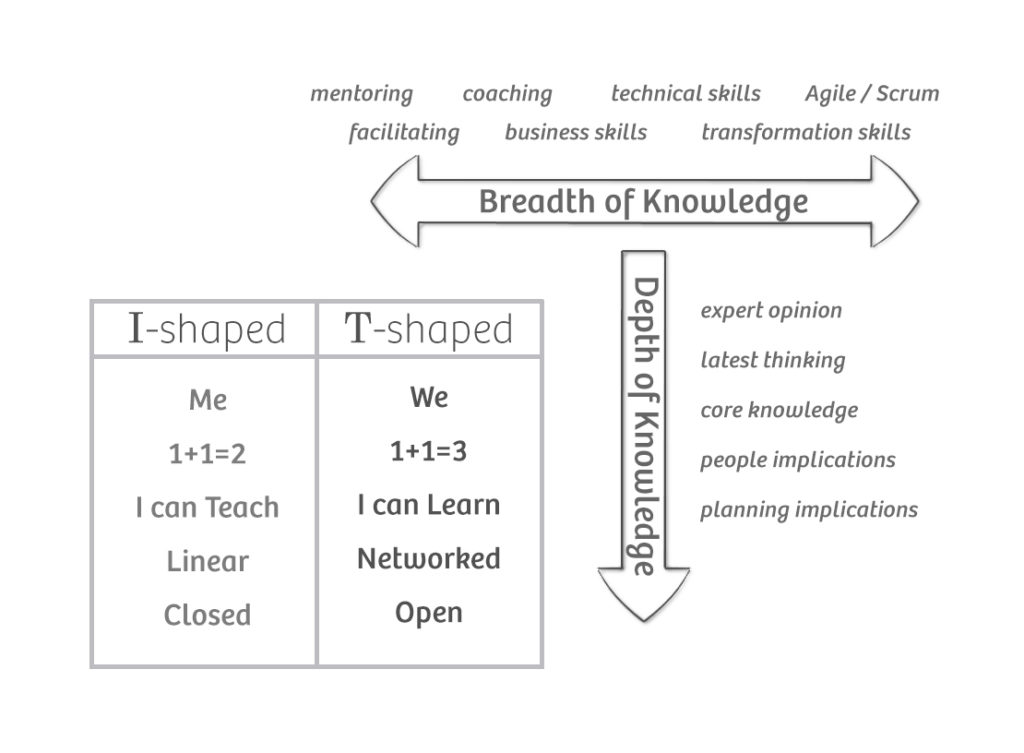What It Is:
T-shaped people or T-shaped skills refer to individuals who have both deep expertise in a specific domain (the vertical bar of the “T”) and a broad set of skills or knowledge across various disciplines (the horizontal bar of the “T”). The concept is often used to describe the skill set of an individual or a team member in a collaborative and multidisciplinary work environment.
Origin and Application:
- The concept is attributed to Tim Brown, the CEO of IDEO, a design and innovation company. IDEO is known for its emphasis on interdisciplinary collaboration, and the T-shaped skills concept emerged as a way to describe the kind of skills and mindset valued in such an environment.
Key Attributes:
- Vertical Bar (Deep Expertise): Represents the depth of knowledge and expertise in a specific field.
- Horizontal Bar (Broad Skills): Represents the ability to collaborate and work across multiple disciplines, fostering teamwork and adaptability.
How to Use It:
Using T-shaped People/Skills in Agile Coaching:
- Team Building:
- Encourage the development of T-shaped skills within the team. Identify areas where individuals can deepen their expertise while also acquiring a broader understanding of related domains.
- Cross-Functional Collaboration:
- Emphasize the importance of cross-functional collaboration. T-shaped individuals are well-suited for Agile environments where collaboration and adaptability are crucial.
- Skill Sharing:
- Facilitate a culture of skill sharing within the team. Encourage team members to teach and learn from each other, fostering a collaborative learning environment.
- Adaptability:
- Emphasize the value of adaptability. T-shaped individuals can quickly pivot and contribute in various aspects of a project, making them valuable assets in Agile teams that require flexibility.
The concept of T-shaped people/skills aligns with Agile principles by emphasizing collaboration, adaptability, and a holistic approach to problem-solving. Encouraging T-shaped skills within an Agile team contributes to a well-rounded and versatile group capable of delivering value across various aspects of a project.
References:
- IDEO’s Publications and Talks:
- Explore IDEO’s publications, talks, and resources. Tim Brown and other IDEO leaders often discuss the importance of interdisciplinary collaboration and T-shaped skills.
- Agile and Scrum Literature:
- Many Agile and Scrum literature highlight the importance of cross-functional teams and the diverse skills needed for successful Agile development. Look for resources from thought leaders in the Agile community.
- Design Thinking Materials:
- As the concept has roots in design thinking, materials on design thinking principles and practices may provide additional insights into fostering T-shaped skills.
- Skill Development Platforms:
- Platforms that offer courses on both specialized and general skills can be useful for individuals looking to develop T-shaped skills. Encourage team members to explore relevant courses.
Visit the Agile Coach’s Toolkit for more definitions, models, theorems and stuff.

